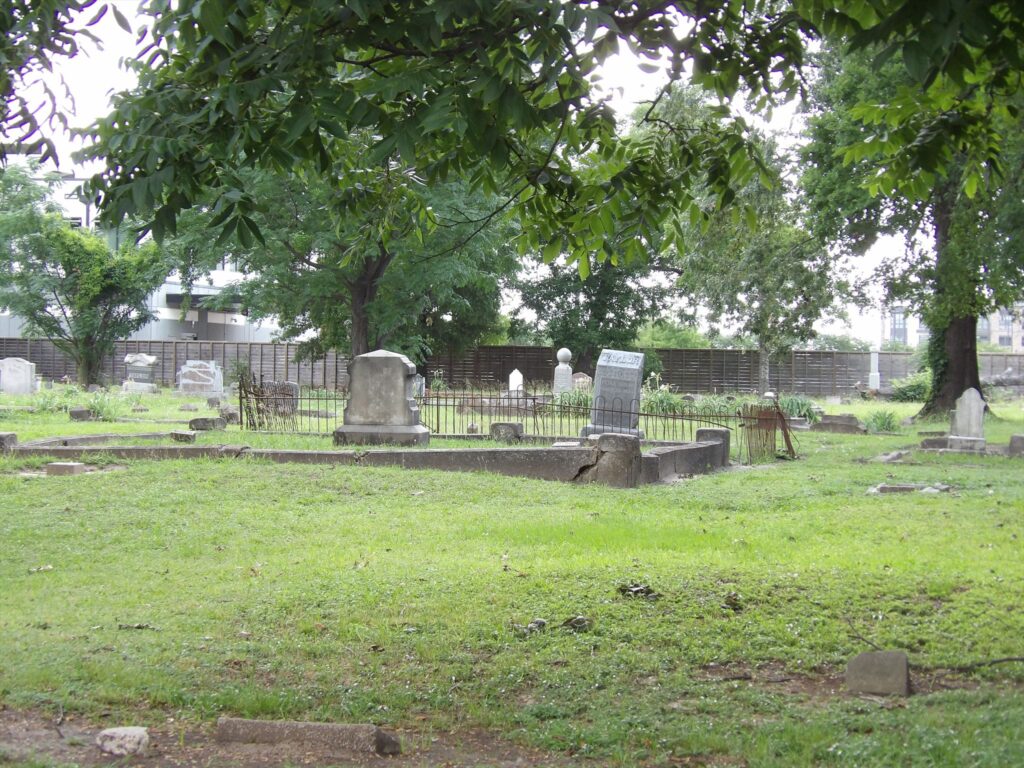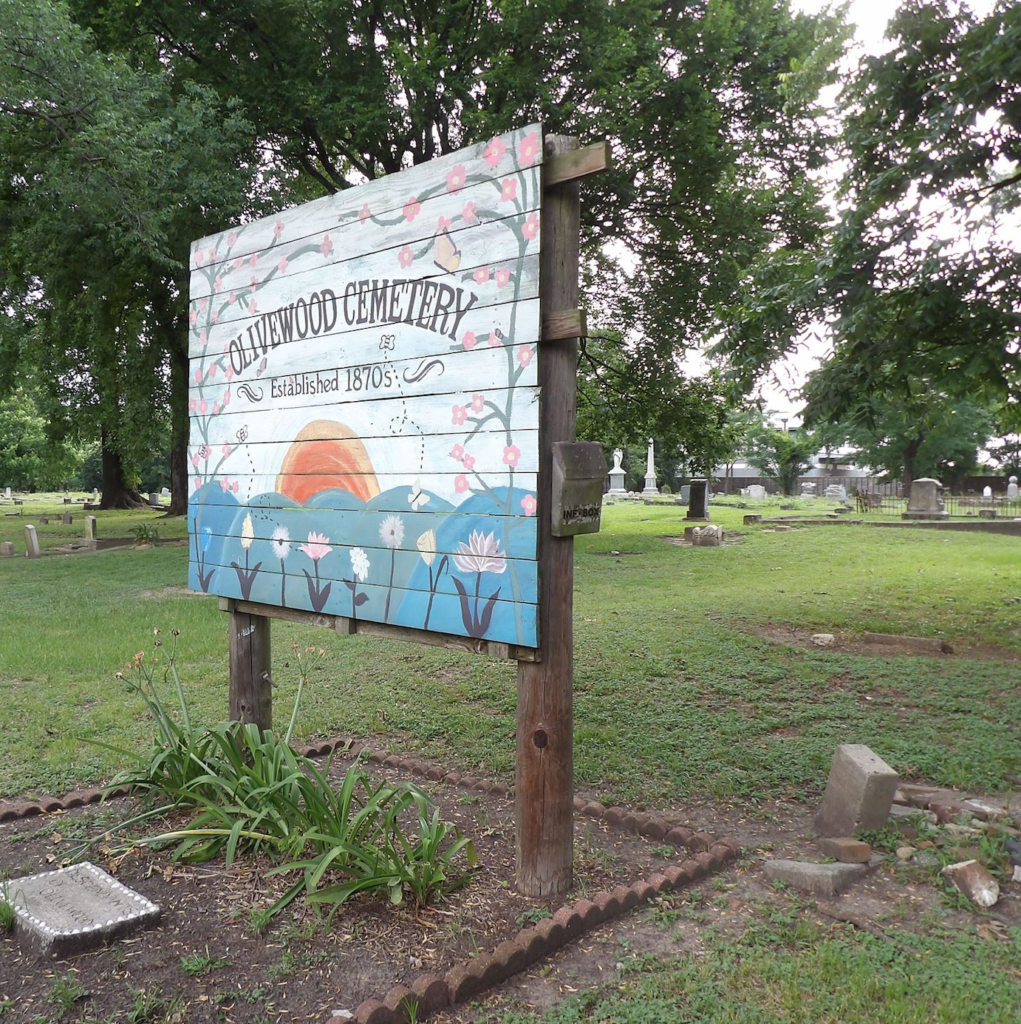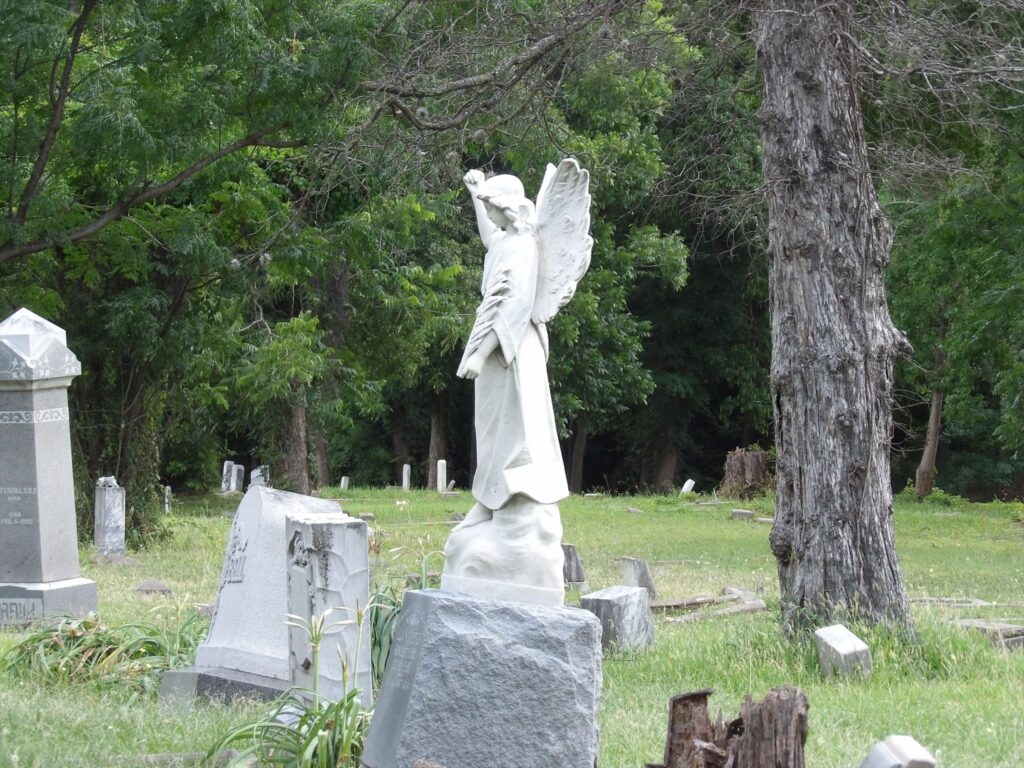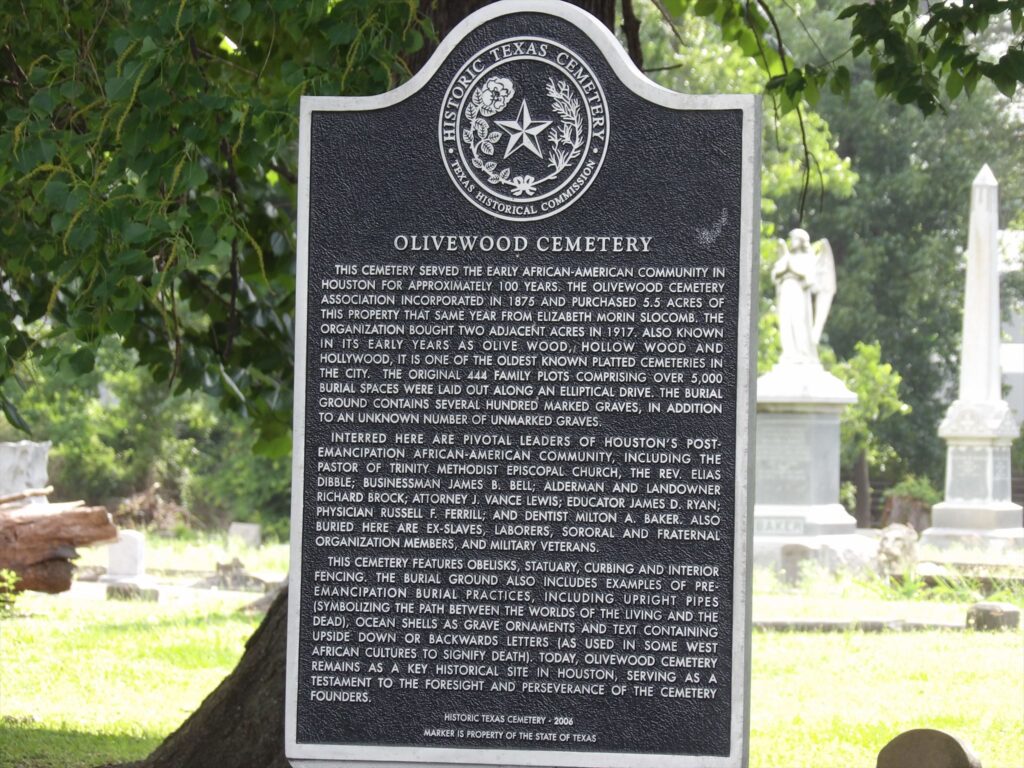Houston
Olivewood cemetery
in Houston
Oldest black burial Ground
Olivewood Cemetery was the first resting place for many African Americans in the early community in Houston. It was incorporated in 1875, 10 years after emancipation in Texas, though it might have also been a burial ground for enslaved people: two headstones date to 1869 and 1871, according to the Texas State Historical Association.




In 2004, the cemetery’s terrible conditions prompted Charles Cook and Margott Williams to form the Descendants of Olivewood, a non-profit organization dedicated to maintaining and preserving the historic site and preserving the legacy of their ancestors.
The cemetery is 8 acres, but only the front quarter has been cleared. They are pursuing plot and walkway beautification as more gets cleared. However, the cemetery is gradually eroding due to drainage issues. The cemetery will be gone in the next 50 years if something isn’t done to control the erosion.
The Descendants of Olivewood want to make Houstonians aware of something they don’t even know is there. They need ambassadors and young people to help them with this mission!
"Look at my people. This is my family"
Around four thousand Houstonians are buried at the site. Prominent African Americans buried in cemetery include:
- Richard Brock, the city’s first Black alderman and cofounder of Emancipation Park.
- Elias Dibble, the first black ordained Methodist minister in the country and founder of Trinity Methodist Church. Dibble began life as a slave and arrived in Houston as one of the many freed slaves seeking opportunities.
- Wade Hampton Logan, also an early pastor of Trinity and a presiding elder for the Navasota and Marshall Districts of the Methodist Church.
- James D. Ryan, philanthropist, educator, and community leader. He was born in 1872 and served as the Dean of Education in Houston.
- Dr. Charles B. Johnson, also known as “The Singing Dentist” and author of Houston’s Bicentennial song ‘Houston is a Grand Old Town,’ written in 1927 but performed in 1976.
In its early days, the cemetery was a source of pride among the Black community in Houston. Several Houstonians held shares in the cemetery, including the Reverend David Elias Dibble, a former slave who was the first ordained Black minister of Trinity Methodist Episcopal Church, according to TSHA. But in the 1940s, commercial and residential development spread throughout the neighborhood surrounding the cemetery.
Dr. David Bruner, a professor at Lone Star College, and his students helped Olivewood get recognized by the UNESCO Routes of Enslaved Peoples Project. He says the cemetery is filled with expressions of West African tradition: upright metal pipes that border graves, reverse writing on some markers, and seashell designs on stones.
“It’s a sad state of affairs that sites of the African diaspora are under-documented. They’re not as equally written about or researched as other types of sites across the United States,” says Bruner. “That’s why I refer to the Olivewood Cemetery as Harris County’s most important cultural resource, because it does express this window into our knowledge about African American history in a very unique way.”
